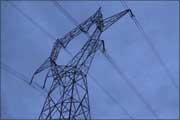Most power companies and exchanges are opposed to the Central Electricity Regulatory Commission's proposal to cap electricity prices. They feel the move may affect competitive rates being discovered in tariff-based bidding.
 The country's nodal power regulatory agency, in a discussion paper, argued that the Electricity Act, 2003, empowers it to regulate rates in case of shortages to ensure reasonable prices.
The country's nodal power regulatory agency, in a discussion paper, argued that the Electricity Act, 2003, empowers it to regulate rates in case of shortages to ensure reasonable prices.
CERC is also mandated to develop competitive power markets, including trading. CERC also observed that there were instances wherein power sellers made abnormal profits without undertaking much risk. CERC admitted prices were declining, though they were still on the higher side.
Internationally, prices were in the range of Rs 2.50-3.50 per unit, while currently prices on exchanges were at Rs 3.50 to Rs 4.85 per unit.
CERC chairman Pramod Deo told Business Standard that the power regulator was keeping a close watch on electricity prices and no caps had been introduced for the present.
Tata Power Trading, an arm of Tata Power, opposed the move, saying prices had started showing a declining trend and any intervention might affect new investment.
In its presentation to the regulator, the company said portfolio sellers were adding to the volumes in the market and, therefore, there should not be any undue concern on their profits.
Jindal Power agreed and said the company was opposed to any price cap because the market trend indicated the declining prices.
The company informed CERC that its average selling price in 2009-10 was Rs 5.26 per unit and it had come down to less than Rs 5 in the last six months.
Jindal Power suggested promoting an open access system for increasing the depth of markets and also interventions by State Electricity Regulatory Commissions on procurement of power by distribution licensees.
Adani Power said price caps should not be imposed, as it might affect competitive rates being discovered in tariff-based bidding. The company explained this was so because developers would expect lower income from merchant sales.
It said prices in the short-term market were higher because of extra liabilities, like earnest money and letter of credit charges.
Indian Energy Exchange also said it was not in favour of price caps. According to IEX, participation of open access consumers is moderating prices in power exchanges. The exchange said there was a need for introducing long-term contracts. IEX suggested the retail rate structure should be such that open access consumers were charged the marginal costs of the utility.
Power Exchange India made a strong pitch for allocation of larger transmission capacities to power exchanges and introduction of term-ahead contracts of longer duration on power exchanges.
PTC India said the short term prices were higher because these were related to firm contracts and distribution companies would prefer such products because no meaningful supply planning could be done on the basis of day-ahead contracts.
PTC India suggested CERC should encourage larger investments in merchant capacities.





